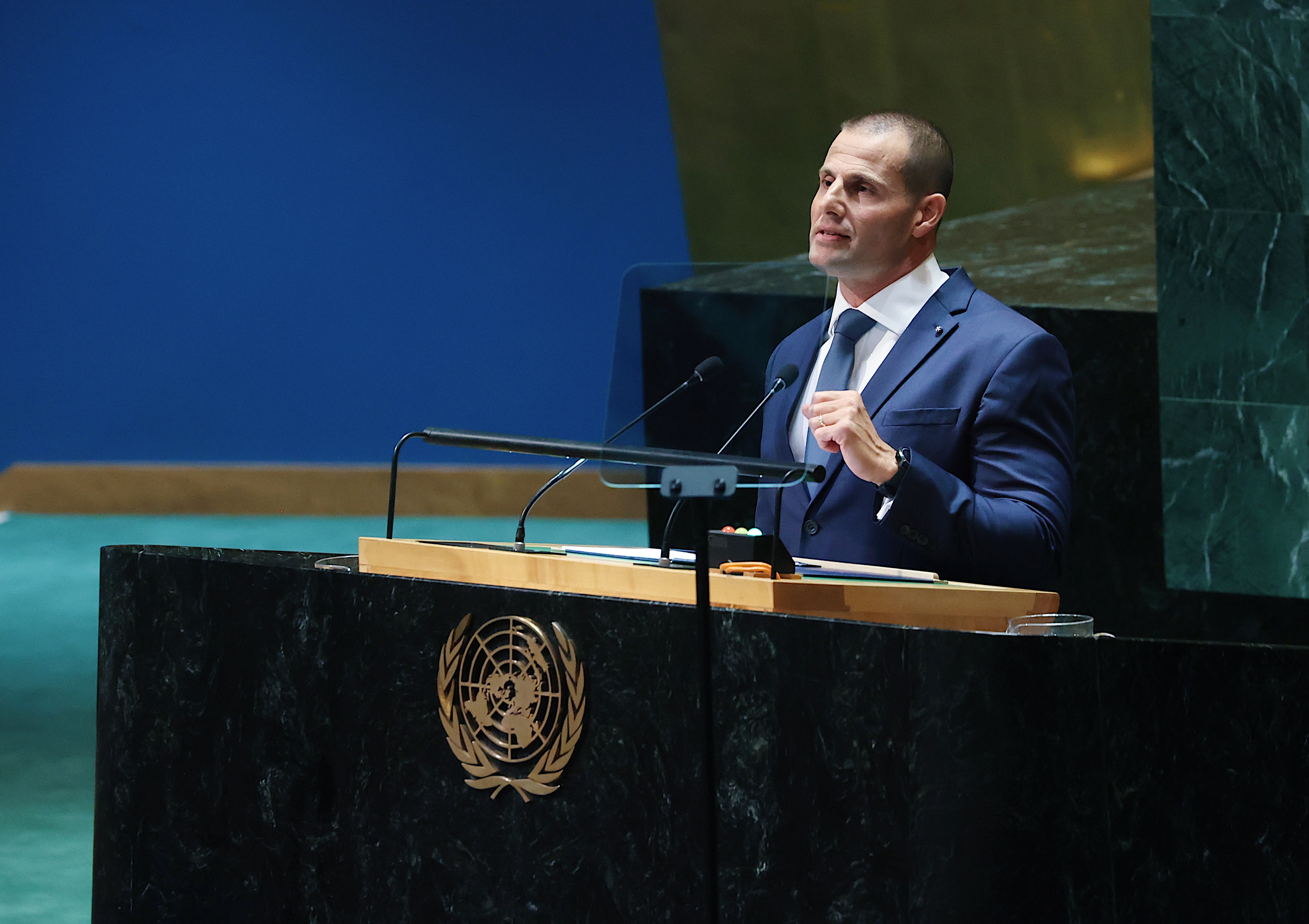
Secretary General,
Excellencies,
Distinguished delegates,
Dear friends.
It is a privilege to once again be addressing you on behalf of the people of Malta.
As I was preparing my remarks, I was reminded of those timeless lines from the poet John Donne:
No man is an island entire of itself;
every man is a piece of the continent, a part of the main.
Malta is a proud island nation!
But we are most definitely not an island entire of ourselves.
Quite the reverse.
Throughout our history we have looked outward to the world.
Conscious of our unique geographic position at the crossroads of Europe and Africa.
Consciously stepping up into a unique role, building bridges, and building understanding between different traditions.
Indeed, earlier this very month, we were proud to be just such a bridge.
Trusted – by both sides – to host private talks between the United States’ National Security Adviser and China’s Foreign Minister.
Malta – providing a safe space for vital discussions between the world’s two biggest powers.
And it is to build bridges like this that, almost sixty years ago, the Republic of Malta was admitted as a full member of this United Nations.
It is a sign of the confidence our fellow members have in Malta’s commitment to working together for the common good, that they elected our nation to serve on the Security Council for this year and next.
It is why, embedded at the heart of our constitution is the active pursuit of “peace, security and social progress among all nations.”
Malta will always be open to the world.
Malta will never turn its back on its neighbours.
Malta will continue to workrelentessly with our partners in Europe and beyond, to stand up for peace and the rule of law.
Sadly, the need to stand up for those values has rarely been more urgent or more important than it is today.
We witness Russia’s violation of international law with its continued assault on Ukraine.
Malta’s response to the situation in Ukraine – and other crises across the world – is guided by the values of Neutrality enshrined in our constitution.
Malta’s neutrality does mean That we will continue to be directly opposed to military aggression and unilateral action against members of the global community and the rules-based order.
But Malta’s neutrality does notmean that we are indifferent to what happens around us.
We will never be neutral when we see pain and suffering caused by an illegal invasion.
In this spirit of peace, we call on Russia to withdraw its forces from the sovereign territory of Ukraine.
And we urge all the nations gathered here to unite to deliver an end to the war.
The tragedy of war is not just that those directly involved suffer – but that the consequences reverberate around the world.
The already precarious situation of global food security has been made much worse by the invasion of Ukraine.
An estimated extra 122 million people across the world pushed into hunger since 2019.
Malta urges Russia to re-join the Black Sea Grain Initiative.
And stop standing in the way of vital food supplies leaving Ukraine to feed the world’s most needy.
Being neutral has never meant Malta ignoring the problems facing our neighbours.
We are acutely aware that many of the challenges we face at home are best tackled together with our Mediterranean neighbours.
Which is why I am proud our capital Valletta will host the next summit of the EU’s MED 9 members in just a few days’ time.
The most pressing issue in the Mediterranean is Libya.
The peace of our whole region depends on a lasting settlementthere.
Malta wishes to see a peaceful, stable, and prosperous Libya – through a Libyan-led political process.
It is vital that the entire international community encourages this process and gives the Libyan people the support they need to overcome the instability – for which they have paid such a high price.
The need to recover and rebuild after the tragic devastation of Storm Daniel underlines the urgency and importance of a lasting settlement, that gives all Libyans the effective government they deserve.
For Malta being a good neighbour means offering practical help.
Within hours of the disaster hitting, a team from our Army and Civil Protection Department were on the way to Libya to play their part in the rescue effort.
Maltese officers also remain on active service with the UN in Lebanon – proudly wearing blue berets as part of the Interim Force – underlining the importance Malta attaches to peacekeeping, as well as peacebuilding, in the Mediterranean.
As the nation at the crossroads of Europe and Africa, our extended neighbourhood stretches beyond the Mediterranean coast.
Our objective is to be a true bridge between the continents.
My government has underlined Malta’s commitment to Africa by opening new diplomatic missions in Ghana and Ethiopia and putting into action our first national Strategy for Africa.
But strengthening connections doesn’t just mean strengthening diplomatic ties.
We have already concluded agreements with countries likeEthiopia to facilitate connectivity for businesses and people between the continents.
Malta remains deeply disturbed by the dire security situation in the Sahel: political turmoil, irregular migration, the jihadist attacks on the civilian population, and food insecurity.
We are particularly concerned about the current situation in Niger and underline the urgency of a peaceful resolution to the crisis.
From Ukraine to Mali, Libya to Niger, it can – all too often – seem like we are living in an era of despair.
And the problems the world faces are indeed deep and profound.
It would be all too easy – and all too understandable – to fall into despondency.
To think that nothing can be done.
But in the rest of my remarks, I want to show that things can be done.
That we can make a difference.
That if a small nation like Malta can play its part in addressing the most urgent issues our world faces – then this United Nations can put in place real and effective solutions globally.
I began with that famous quotation “no man is an island”.
And leaders must not be an island either.
Our fine words to this august assembly must not stand alone.
They must be directly connected to our actions at home, and the priorities of our people.
We must show through deeds – not just words – that we can address the fears, as well as the hopes and aspirations, of the people we represent.
One of the advantages of being Prime Minister of a small country is that you are very close to the people you represent.
You hear loud and clear what is worrying them.
One of the persistent worries I hear is that people feel a niggling sense of insecurity.
Post pandemic, they feel that the world is a less stable, increasingly scary place.
And with such big global forces at play, too often citizens can feel like they don’t have their hands on the levers that control their futures.
I understand where those concerns are coming from.
Addressing them is why I am into politics.
It is why I am adamant that everyglobal policy we put in place must make a difference locally.
That we can show that by working together internationally we can deliver solutions nationally.
That way we can address what pessimists call the new ‘Age of Insecurity’, by building a new ‘Age of Security’.
Yet, we must be realistic.
There is no magic wand.
I am realistic about what anyindividual nation can do.
And I am acutely aware there is only so much a small nation can do.
But if we all play our part, we canall make a difference.
In short, we are stronger together.
No one can feel secure about their family’s future unless they feel secure about the future of the planet on which we all live.
And the natural world on which we all depend.
The biggest threat to our planet is clearly climate change.
And this isn’t some sort of abstract problem.
This is a very real emergency – the consequences of which are being felt in every part of the world.
Current pledges and targets are not sufficient to keep the 1.5 degrees objective of the Paris Agreement within reach.
Malta wholeheartedly commends the Secretary General’s initiative to help states accelerate efforts at the global level.
We must all play our part and work together. The time for excuses islong over!
Malta is a proud maritime nation.
The sea plays a profound part in Malta’s national life – and has a special place in the hearts of the Maltese people.
Rising sea levels are a severe threat to the security, livelihood, and indeed, the very existence of island countries like ours.
Securing the future of our seas and oceans is an urgent imperative for the government of Malta.
Which is why we have made climate and oceans the number one priority during our term on the United Nations Security Council.
To give the debate new momentum, we made a High-Level meeting on the implications of rising sea levels for peace and security the signature event of our presidency of the Security Council in February.
And we enthusiastically extend our support for the newly created Coalition on Addressing Sea-level Rise & Existential Threats.
It is not just the direct consequences of rising sea levels that we need to be concerned about.
As land is degraded – freshwater shortages, displacement of people and food insecurity all risk undermining global security.
Generating new conflicts and exacerbating existing ones.
Rising sea levels also threaten the very territorial integrity of states as a result of coastal inundation.
With a consequent danger of disputes and conflict.
So, I wish to reiterate in the strongest terms – as I did at COP27- that no coastal state should lose anyof its existing rights over its maritime zones due to rising sea levels.
As a United Nations we must preserve the sovereignty of coastal states – no matter what the ravages of the sea.
As Island nations we turn to the world, but we don’t turn our backs on each other.
Solidarity between small island countries is a key value for Malta.
And a value we turn into practical support.
Like the majority of nations in the UN, Malta was late to develop.
And we have experienced many of the same challenges which are currently being faced by developing countries.
That’s why we have made raising awareness of the unique vulnerabilities of Small Island Developing States a top priority.
And why supporting sustainable development for Small Island Developing States is a cornerstone of our foreign policy.
To do this, we are committed to our ‘Island for Islands’ initiative.
Delivering concrete, practical support for these small island nations – the nations most exposed to the impact of climate change.
We share best practice and help build capacity –
We were delighted that Malta’s scholarship programme for students from Small Island Developing States has been recognised with a UN Partnerships award.
Protecting our planet is a mammoth task.
But by taking visible, measurable action we can and we must show our citizens that they have reason to believe in the security of the earth’s future.
There are those who say that securing the planet can only be achieved at the expense of economic growth.
I firmly reject that thinking!
In fact, I believe the reverse is true.
Environmental security can only be achieved if citizens feel economic security!
Only if you feel secure about your family’s economic wellbeing can you turn your attention to the wellbeing of the earth.
And only by delivering sustainable economic growth can we deliver sustainable environmental protection.
From the perspective of an outward facing, trading nation like Malta, there is one overwhelming clear and present danger to economic security – the prospect of a new era of protectionism.
If protectionism grows unchecked, it could do untold damage to an export-orientated island economy like ours.
The Maltese people have benefited hugely from the opening up of the world economy.
As vested interests have given way to innovation, they have seized the new opportunities.
Like many young economies, Malta has harnessed digital technology, and the breaking down of trade and tariff barriers, to expand into sectors that were previously off-limits to small nations like ours.
What the world economy and the world’s citizens need is not a new era of protectionism.
Instead, we need a new age of social protection.
Not putting up barriers to trade.
But putting in place standards and rights for workers.
I understand and appreciate how some people feel left-behind by the sheer pace of economic change this century.
The pandemic showed the need to think through the geo-political risks of supply-chains.
But the answer isn’t to turn the clock back.
It is to get the future right!
One of the themes of this year’s General Assembly is ‘rebuilding trust to achieve sustainability for all’.
And that is exactly what we mustdo.
Too often smaller and developing countries have been excluded from the decision-making process and have suffered as a result.
Malta is clear – trust on trade can only be achieved if genuine solidarity is maintained with allmember countries.
Open trading should be fair trading.
Open economies should be fair economies.
Only with fairness will citizen’s sense of security be rebuilt.
I came into politics passionate about building a country where decision making is based on fairness and opportunity.
With a commitment to equality which is also a commitment to competitiveness.
Take gender equality!
Empowering women powers economic growth.
One of our government’s proudest achievements is the introduction of free childcare that has enabled more parents to re-enter the workforce.
Increasing women’s economic power and increasing growth for the economy as a whole.
I am proud to be speaking to you in the same month that Malta hosted a hugely successful Euro Pride.
Crowning recognition for the transformation in our nation’s approach to LGBTIQ+ rights that has taken place since my party was returned to government.
And a huge boost for our islands’ profile and our islands’ economy.
And, take closing the digital divide.
Equipping more citizens – of all ages and from all backgrounds – with the digital skills they need bothincreases their individual earning power and adds to the nation’s productivity.
Which is why we’ve extended ICT as a compulsory subject in all our upper secondary schools.
So, Malta calls on the international community to work harder to ensure that the digital divide is narrowed – not just within each nation, but globally.
Similarly, upholding the rights of the child – as enshrined in the UN Convention – is of paramount importance to Malta.
We work hard to ensure that everychild has the opportunities they deserve – no matter what the circumstances of their birth.
By tackling child poverty and ensuring equal access to education and healthcare, we aim to ensure no child is left behind.
Rightly, it is a moral imperative.
But it is also an economic one.
Leaving any of the next generation of workers without the skills they need isn’t just damaging to the individuals excluded from prosperity.
It is also damaging to economic growth.
None of us can feel secure unlessevery child in our societies is safe and secure.
One significant manifestation of the feeling of insecurity has been the growing number of people facing mental health difficulties.
None of us can feel secure unless we know that mental health is taken as seriously as physical health by our healthcare systems.
Even if we don’t have mental health issues ourselves, knowing that care and support is there should we, or those we care for need it, is part of the reassurance an active state should provide.
To help provide that reassurance, in Malta we have implemented a comprehensive mental health strategy to build capacity, address causes, and offer continuing support to individuals with mental health needs, and their families.
Through initiatives like the National Mental Health Helpline launched last year offering a ‘one stop’ 24/7 resource to connect patients with the services they need.
One of the biggest drivers of mental health worries is fear of the future.
Indeed, none of us can feel secure about our lives if we don’t feel secure about what is coming tomorrow.
Right now, one of the biggest fears many have is of technology.
We have lived through two decades of unprecedented change.
From the basic mobile phone and text messaging – To smart phones and face recognition.
It can often seem like society has lost control.
That the technology itself is in charge.
And now, with the advent of generative Artificial Intelligence, the risk is that seems truer than ever.
How we feel about our futures is not helped by lurid media headlines about the ‘Machines Taking Over’.
Spreading fear about AI taking jobs and rendering human effort obsolete.
Let’s be clear – AI will have a huge impact on all aspects of society.
But let us also be clear that if as leaders we take the right decisions – that impact can be a positive one.
Again – as with trade –
The answer isn’t to try and turn the clock back!
To close our eyes to the inevitable and hope it will go away!
Instead, the answer is to get the future right!
To take the decisions now so that we can harness the power of AI for the public good, not fear it as a coming catastrophe.
In Malta we are already doing just that.
We are already seeing how AI can enhance public services, improving lives for all citizens.
We have six pilot projects covering areas from healthcare to traffic management.
Taking ownership, not trying to ignore the future.
Though, naturally, there is a limit to what any one country – especially a small one – can do.
To make AI a global good, we need global action.
Malta stands resolutely behind efforts to increase and enhance international cooperation on AI.
Technology is changing too fast – its potential so vast – that failing to work together isn’t an option.
Of course, it is not just in the tech field that we need to work together.
Working together is not only a key value for Malta.
It is at the very centre of the political tradition I proudly represent.
Put simply – that standing together we can achieve so much more than working alone.
That yes, none of us – nations, leaders, societies – stand as islands isolated from each other.
We are all connected in ever more ways.
We live in a new age.
In an age when you can send a video to the other side of the world faster than you can walk to the other side of the room you’re sitting in.
In an age when the decisions about how to generate energy in one country can impact the very survival of another country oceans away.
In an age when the aggression of one country against another can lead to hunger across a different continent.
In such an age the importance of working together will only become stronger.
The word for it – multilateralism – may not trip off the tongue but it is more important than ever.
To make multilateralism work in this age of insecurity we need to ensure that a much wider group of voices are heard – in this United Nations, and around the globe.
The voices of all countries – large and small, rich, and poor, developed and developing.
The voices of all sections of civil society – women not just men, young as well as old, gay as well as straight.
All backgrounds, all ethnicities.
I refuse to believe; Malta refuses to believe; that a new age of insecurity is inevitable.
I know, Malta knows, that we mustbuild a new age of security.
Not by trying to turn the clock back.
But by getting the future right!
If we work together.
If we listen to – and learn from each other.
If we understand and appreciate the desire of our citizens to take back control of their lives.
We can and we will get the future right!
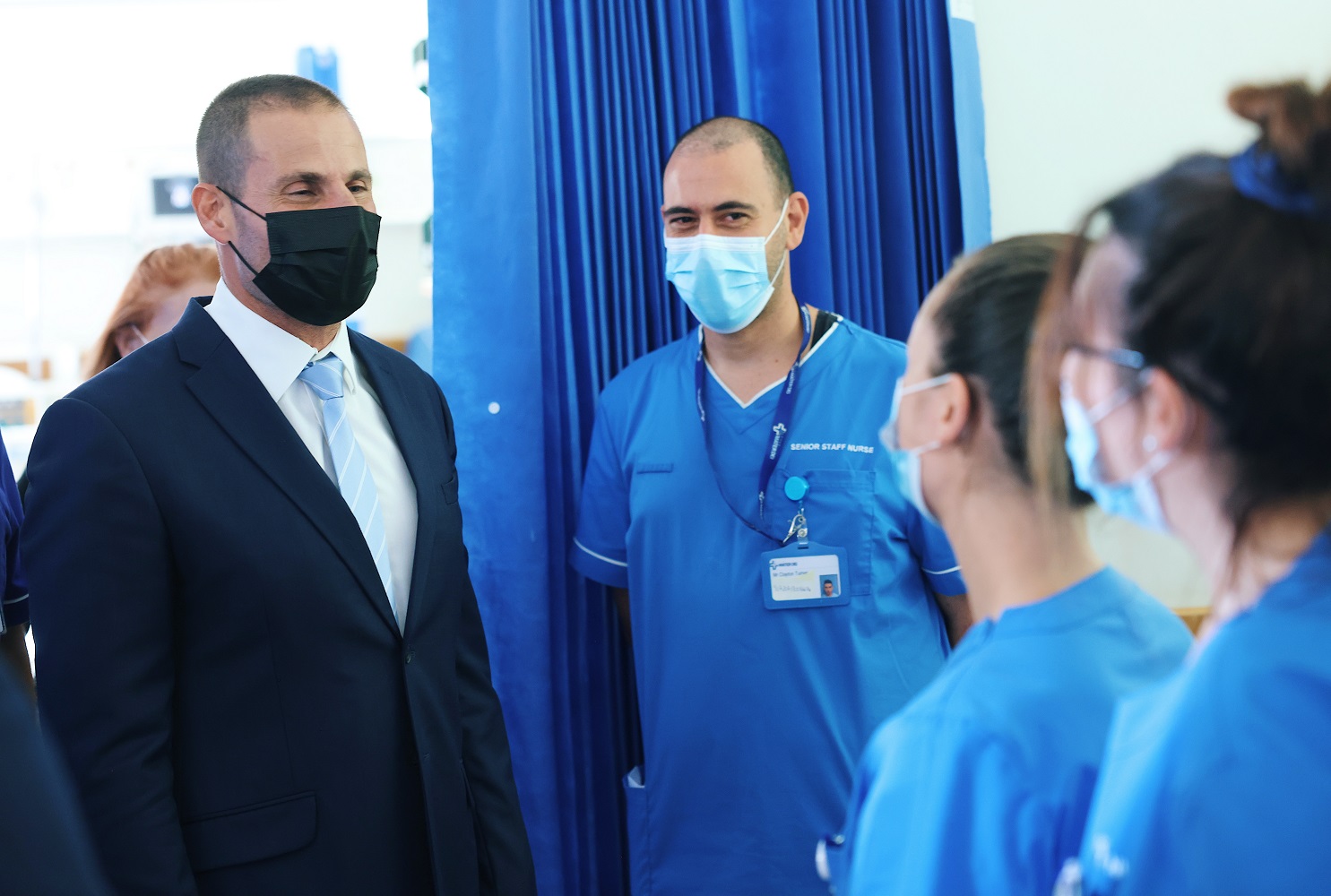


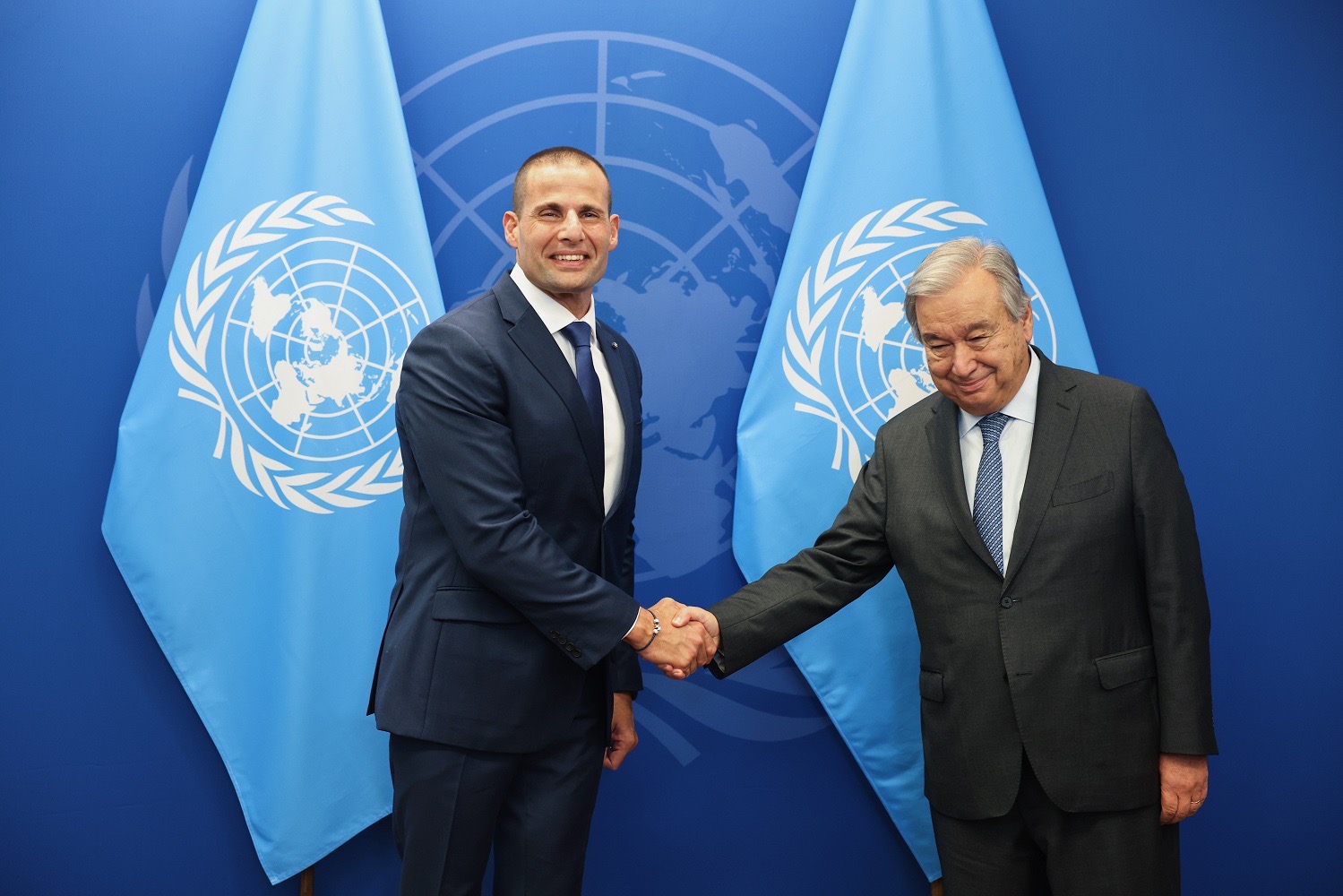

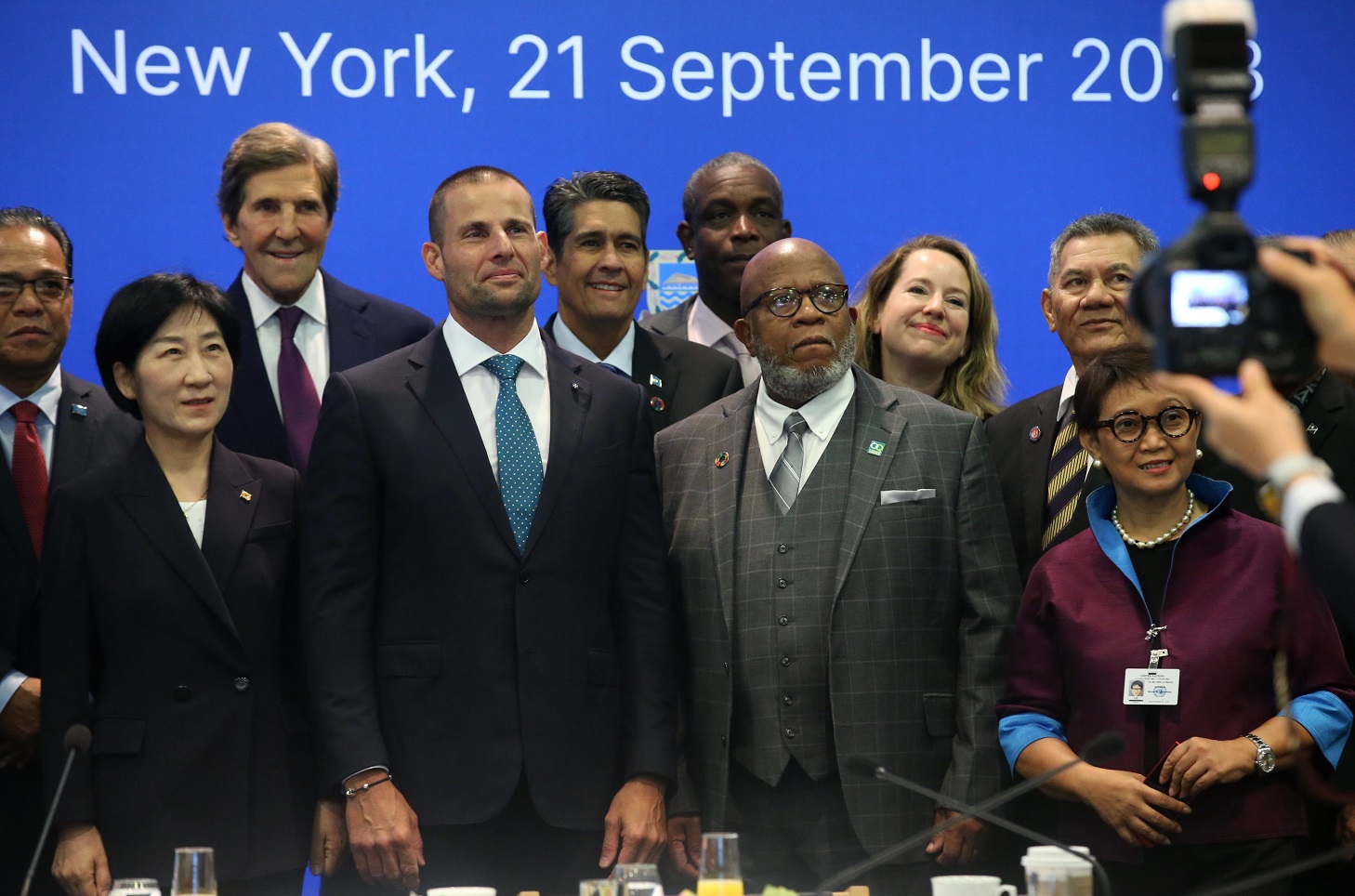
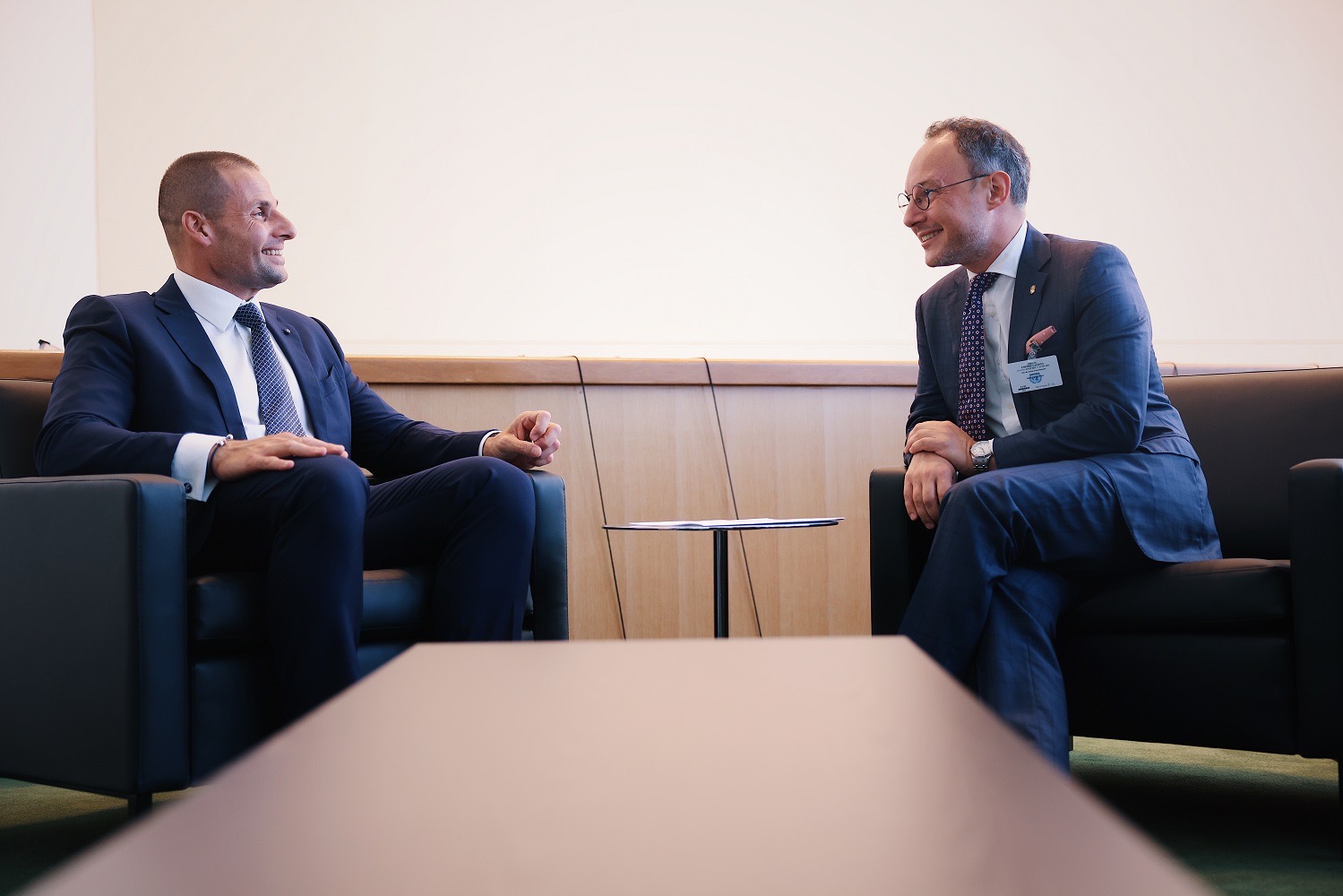
Recent Comments